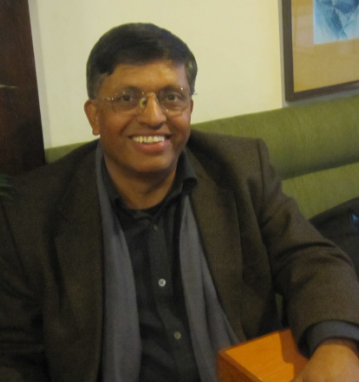– Madhu Raman Acharya.
Former Foreign Secretary, Nepal’s Ambassador to Bangladesh
Context:
As usual, the 76th Session of the General Assembly is being held in usual structure and format.
The theme of this year’s General Assembly is “Building resilience through hope – to recover from COVID-19, rebuild sustainably, respond to the needs of the planet, respect the rights of people and revitalize the United Nations”.
This theme will be the focus of the General Debate and the High-Level Dialogue to be held from 21-27 September at the UN’s headquarters in New York.
There will be main events and high level meetings of racial discrimination energy, food systems, and a commemoration on international day for total elimination of nuclear weapons.
Perhaps, there will be no bigwigs in the UN Assembly this year, mostly because the session is being held in so-called “hybrid” format, in which many world leaders will make appearances virtually and smaller number of delegates will attend the same in person.
As such, the United Nations has been routinely sidelined by the leaders of powerful countries often meeting in formats outside the UN in the banner of G7 and G20 before the UN assembly.
They discuss and agree on most issues beforehand and some even choose not to attend the UN assembly, mainly for that reason.
A special feature in this year’s assembly in New York is that this year’s President of the General Assembly will be a South Asian, Foreign Minister Abdu of the Maldives, who defeated another South Asian candidate from South Asia, from Afghanistan.
South Asia is also in the spotlight this year due to the situation in Afghanistan.

This year’s UN assembly is being held at a special juncture in the aftermath of coronavirus pandemic and intense global attention to the situation in Afghanistan due to the Taliban takeover after the U.
S. departure from the embattled South Asian country.
This will also be the first UN Assembly for the U.
S. President Joe Biden, who is supposed to be more pro-UN than his predecessor Donald Trump, who had withdrawn from several multilateral pacts brokered at the UN and undermined the UN’s role cutting its funds and scuttling its mandates in peace, security, human rights and development mission around the world.
This has also been a year of reflection on multilateralism after the UN completed 75 years last year. Some six in ten respondents in a UN survey last year had said that the UN had made the world a better place and almost everybody in the survey said that it needed to do even better.
As a preview, last year, the UN members had identified twelve areas of priority for the post-75 UN. That included leaving no one behind, protecting planet, promoting peace and preventing conflicts, abiding by international law and justice, placing women and girls at the centre, building trust, improving digital cooperation, upgrading the UN into UN 2.0, ensuring sustainable financing, boosting partnerships, listening and working with youth and being prepared for future eventualities.
For this year, the UN’s Secretary-General has identified certain priorities for the UN.
That includes issue related to COVID-19, inclusive and sustainable economic recovery, making peace with nature, tackling poverty and inequality, reversing the assault on human rights, gender equality, geopolitical rifts, nuclear disarmament and non-proliferation, digital technologies and their growing dangers and starting a reset for the 21st century.
Some of those priorities are also Nepal’s priorities for multilateralism and its multilateral diplomacy.
In his report entitled “Our Common Agenda” on the future of global governance after 75 years of UN, Secretary-General Antonio Guterres has highlighted issues for the UN for next 25 years, including in future of global cooperation, inclusive, reinvigorated, networked and effective multilateralism, post-coronavirus world challenges, thinking big and strengthening global governance.
In that report, he has also put some warnings saying that the world has reached “an inflection point” in which humanity is in a point of breakdown due to various crises including that of climate change.
In its sixth assessment report, the Inter-governmental Panel on Climate Change (IPCC) has signaled “Code Red” for humanity as it is threatening our existence with what has been described as too little and too late response”.
In the UN report, the Secretary-General has put forward a few recommendations including a summit for future and global consensus for a new social contract on multilateralism.
UN’s Agenda:
As usual, the agenda of the 76th session contains 176 main items and many sub-items that have been carried over from the previous years with hardly any new additions.
Among other things, one of the main challenges for Nepali delegation to the UN assembly is to decide as to how to engage in so many agenda items, including that from the deep sea to the outer space.
Nepal cannot engage in all the issues with same interests and indulgence. In view of limited time, capacity and number of delegates.
Nepal has to exercise certain selectivity in exercising the best use of time and available resources during its participation in the UN assembly.
In that regard, Nepal must choose to focus on issues that are in its national interests, in which we have
Tribute and comparative advantage or niche. Among them, some agenda items need special mention with Nepal’s interests.
Managing the aftermath of the COVID-19:
Since last year, the threat of corona virus pandemic has occupied the indulgence and imagination of people around the UN including that at the UN.
It has also exposed the weaknesses and shortcomings in global governance and global multilateralism.
The threat of the virus persists because it is reappearing in new waves and mutations, some of them in more deadlier forms than earlier.
The pandemic has inflicted set back on many agenda that UN has been advancing including in sustainable development.
The UN is at a “blind spot” as to what to do with economic recovery from the pandemic, that has caused severe downturns and job and business losses around the world.
The UN put together a global humanitarian response of two billion US dollars, which has been peanuts compared to the scale of challenge.
The UN was at the back seat during global cooperation for the development vaccines against the deadly virus.
When vaccines were developed-thanks to cooperation among the scientific and business community the UN was startled as to what to do with an equitable distribution of jabs to poorer countries.
Other than declaring corona virus vaccines as “global public goods and calling for an equitable distribution of the same, the UN could not intervene in the global system as many people in several developing countries struggled for vaccines whereas there was excess in stock of the same in developed countries.
UN’s vaccine diplomacy could not unlock export and intellectual property restrictions that could have helped an easier circulation of the jabs.
UN’s much-touted COVAX facility was not of much help in the beginning, as it could not eliminate what were described as “Vaccine Apartheid” and “Vaccine Nationalism”.
Instead, UN itself was subject to intense politicization and political rivalry, especially with regard to investigations on the source-tracing of the corona virus and in the blame game between big powers in the World Health Assembly.
The UN Security Council could not even adopt a statement on the pandemic, whereas it had declared the Ebola virus epidemic in Africa as a threat to international peace and security and had called for international cooperation.
The UN has done little to prepare for future pandemics, let alone rethink of global governance and global cooperation on such global emergencies.
Like most world leaders are expected to dwell on the matter, Nepal should press the UN to overcome these shortcomings.
Multilateralism is required more than ever before.
The UN is needed to play even more stronger role in this many other issues.
Urgency to act on climate change issues:
While climate change remained a big issue at the UN, the implementation of the 2015 Paris Agreement hangs on balance even though it had promised little to fight the global crisis.
Ahead of the 26th Conference of Parties (COP26) to be held in Glasgow in Oct-Nov 2021, the UN members should press for raising ambitions including in lowering the temperature rise to 1.5 degree Celsius before the industrial levels and in stepping up climate finance to $ 100 billion a year.
The “net zero” declaration by many big players and the UN Secretary-General’s call for the same by 2050 should be heeded, mostly by big polluting countries.
Nepal’s own pledge of “net zero” by 2045, as expressed in its second commitment communicated to the UNFCCC Secretariat, should be highlighted.
Some 110 countries have declared carbon neutrality by 2050 so far.
The CoP26 should be pushed to put an end to fossil fuel. Climate change action should not suffer due to the coronavirus pandemic.
Nepal must endeavour to highlight its climate vulnerability, including that from melting of glaciers, snow caps, and permafrost as well as its adverse effects on precipitation, agriculture, livelihood and water sources as well as reoccurrence of climate-induced disasters including this years’ Melamchi floods.
Nepal must keep on pressing for a sustained and robust climate financing, including for its adaption needs, that it has incurred without being responsible for global warming.
This should also serve as an opportunity to reiterate the future of the Sagarmatha Dialogue on climate change that Nepal’s government had proposed earlier.
Nepal should do more in its climate diplomacy, something demonstrated by the fact that Nepal was not invited to U.S. President Joe Biden’s climate event in July, despite its showcasing of climate change action in various fronts.
Nepal should reinforce its positions at the upcoming COP26 to be held in Glasgow.
( Second and concluding part to follow soon).
Text courtesy: Association of Former Career Ambassadors of Nepal (AFCAN), Volume 2, 2021.
Thanks the AFCAN and the distinguished author Mr.
Acharya: Ed. N. P. Upadhyaya.
Our contact email address is: editor.
telegraphnepal@gmail.com

